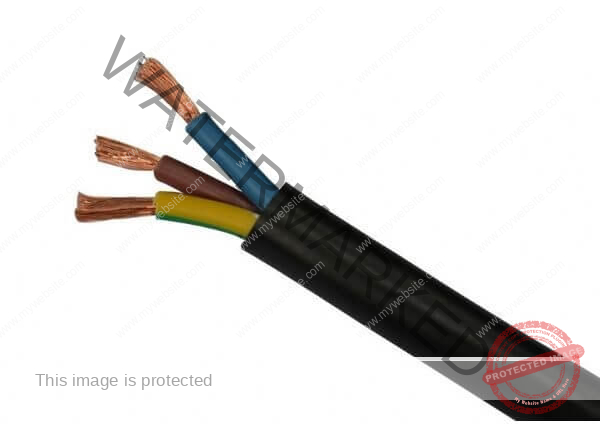Electricity plays a crucial role in our daily lives, powering essential appliances and equipment in homes and offices. Without it, many aspects of modern living would be impossible. However, at the heart of electricity distribution lies a crucial component – cables. These conductive pathways are indispensable for transmitting electricity to where it’s needed. This article delves into the importance of 2.5 mm 3-core cables, their prices in Nigeria, and their diverse applications.
2.5 mm 3-Core Cable Prices in Nigeria:
Before embarking on an electrical project, understanding the costs of materials is essential for effective planning. Below are current prices of 2.5 mm 3-core cables available in the Nigerian market as of July 15, 2023:
- 10.0mm Single Core Coleman Wire: Starting from N95,000
- Coleman Flex Cable 2.5mm x 3core (per roll): Starting from N125,000
- CometStar 2.5mm 3Core Flex Per Meter: Starting from N886
- 2.5mm x 3 Core Pure Copper Flat Wire Cable: Starting from N52,850
- Flat Cable 1.5mm x 3core – Kablemetal: Starting from N59,800
- Doncaster 2.5mm Four Core Flexible Copper Wire: Starting from N58,000
Understanding 3-Core Cables:
A 3-core cable is a fundamental component in electrical connections. It consists of three conductors, each serving a distinct function in the transportation of electrical current:
- Cable A: Transports live power.
- Cable B: Serves as the neutral conductor.
- Cable C: Acts as the grounding cable for safety.
These cables are pivotal in ensuring safe and efficient electrical transmission, making them a common choice for various applications.
Applications of 3-Core Electrical Cables:
3-core cables find extensive use in connecting a wide range of electrical equipment, devices, and appliances to mains power. They are particularly prevalent in scenarios like two-way lighting setups in residential buildings, central heating system wiring, and numerous other applications. The choice between live and neutral purposes depends on the electrician’s design and calculations.
Factors to Consider When Choosing Electrical Cables:
- Installation Method: Consider where and how the cable will be installed, and who will handle the installation to prevent overloading.
- Cable Material: The insulation material affects the cable’s size, maximum operating temperature, and current-carrying capacity. Choose between single-core and multi-core cables based on installation requirements.
- Cable Length: Cable length and size influence voltage drop in a circuit. Longer cables may require adjustments to ensure optimal performance.
Conclusion:
Recognizing the importance of 2.5 mm 3-core cables in electrical installations is crucial for successful projects. By understanding their applications, prices, and key factors to consider, individuals and businesses can make informed decisions when it comes to electrical infrastructure. Whether for residential or commercial purposes, investing in high-quality cables is an essential step towards safe and reliable electricity distribution.

